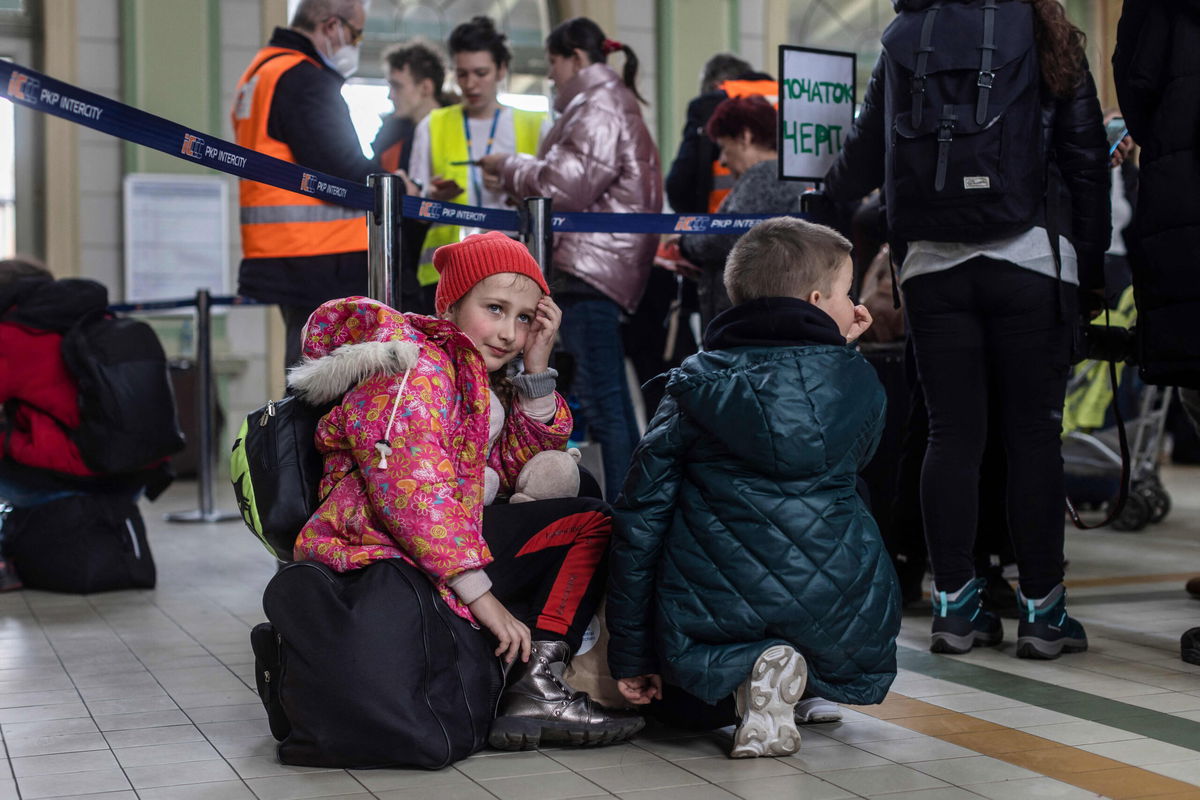UN warns of rape and sexual violence against women and children in Ukraine

Ukrainian refugees at Przemysl railway station in eastern Poland.
By Jack Guy, Richard Roth and Laura Ly, CNN
The United Nations has called for the increasing reports of rape and sexual violence against Ukrainian women and children during the Russian invasion of the country to be independently investigated.
Sima Bahous, executive director of UN Women, a United Nations entity dedicated to advancing gender equity and the empowerment of women, called for a “gender-sensitive” humanitarian response during an address at the UN Security Council (UNSC) in New York City on Monday morning.
“The combination of mass displacement with the large presence of conscripts and mercenaries, and the brutality displayed against Ukrainian civilians, has raised all red flags,” said Bahous.
Allegations of rape and sexual violence “must be independently investigated to ensure justice and accountability,” Bahous said.
There is also an increased risk of human trafficking at border crossings, with young women and unaccompanied teenagers at particular risk, she added.
Reports of sexual violence and other war crimes by Russian troops have been emerging from areas retaken by Ukrainian forces, including Bucha, a suburb of the capital city Kyiv.
Ukrainian President Volodymyr Zelensky raised the issue during an address to the UNSC on April 5, the day after a visit to Bucha.
“Women were raped and killed in front of their children. Their tongues were pulled out only because the aggressor did not hear what they wanted to hear from them,” he said. “This is not different from other terrorists such as ISIS. And here it is done by a member of the United Nations Security Council.”
US Secretary of State Antony Blinken also discussed sexual violence by Russian troops on April 5.
He said images from Bucha were evidence not of the “random act of a rogue unit,” but a “deliberate campaign to kill, to torture, to rape, to commit atrocities.”
Bahous was speaking upon her return from Moldova, where she observed the humanitarian response at temporary shelters for people fleeing Ukraine. There are an estimated 95,000 Ukrainians being hosted in Moldova to date, Bahous said.
“Gender-sensitive and survivor-centered response must be at the heart of all humanitarian action,” she added.
Despite the threat of violence, “women continue to serve and lead their communities and support the internally displaced,” Bahous said.
“Women make up 80% of all health and social care workers in Ukraine, and many of them chose not to evacuate,” she said. “I heard from women in the shelters that they too, are taking on leadership roles, and supporting the refugee response in the host countries.”
But women remain largely absent from any current negotiation efforts, said Bahous, who called for the UNSC and all UN member states to “ensure the meaningful participation of women and girls, including from marginalized groups, in all decision-making processes, peace, diplomacy, and humanitarian.”
“Without this, we will not have peace, development, or human security,” she said.
Also on Monday, Manuel Fontaine, director of emergencies for the UN children’s agency UNICEF, said that nearly two-thirds of Ukraine’s children have been displaced in just six weeks.
Almost half of the 3.2 million who remain in their homes may face food insecurity, added Fontaine.
The situation for children in Ukraine is even worse in Mariupol and Kherson, “where children and their families have now gone weeks without running water and sanitation services, a regular supply of food, and medical care,” said Fontaine.
“They are sheltering in their homes and underground, waiting for the bombs and violence to stop,” he added.
Fontaine also raised concerns over “explosive remnants of war” which can expose children to death and injury, as well as the disruption of education for children across the country.
“Nationwide school closures are impacting the learning — and the futures — of 5.7 million school-age children and 1.5 million students in higher education,” said Fontaine.
“In the Donbas region, a whole generation of children have already seen their lives and education upended during the past eight years of conflict,” he added.
The-CNN-Wire
™ & © 2022 Cable News Network, Inc., a WarnerMedia Company. All rights reserved.
CNN’s Ellie Kaufman, Jennifer Hansler and Jennifer Deaton contributed to this report.